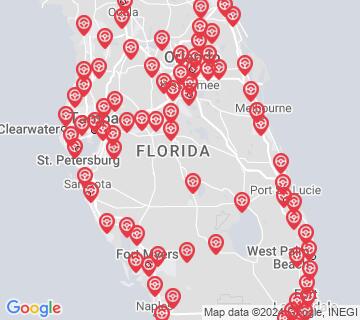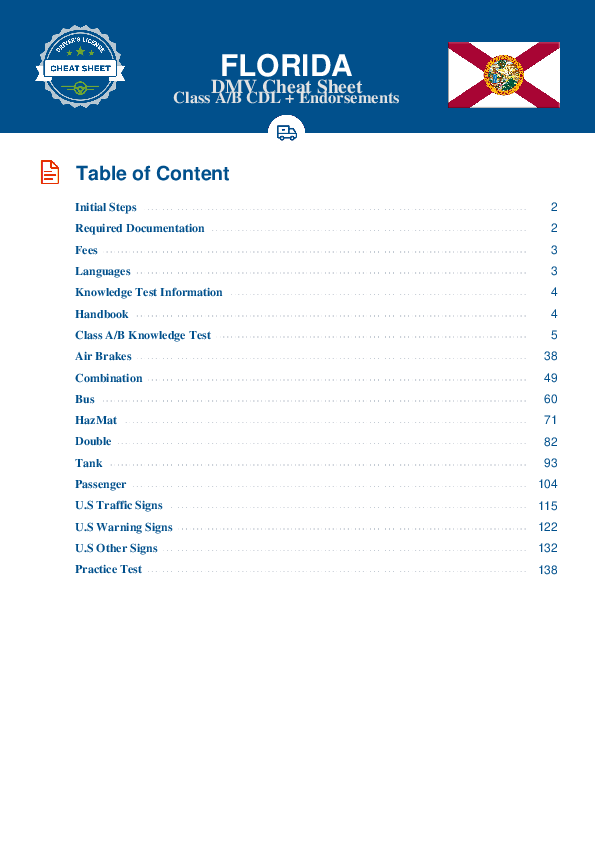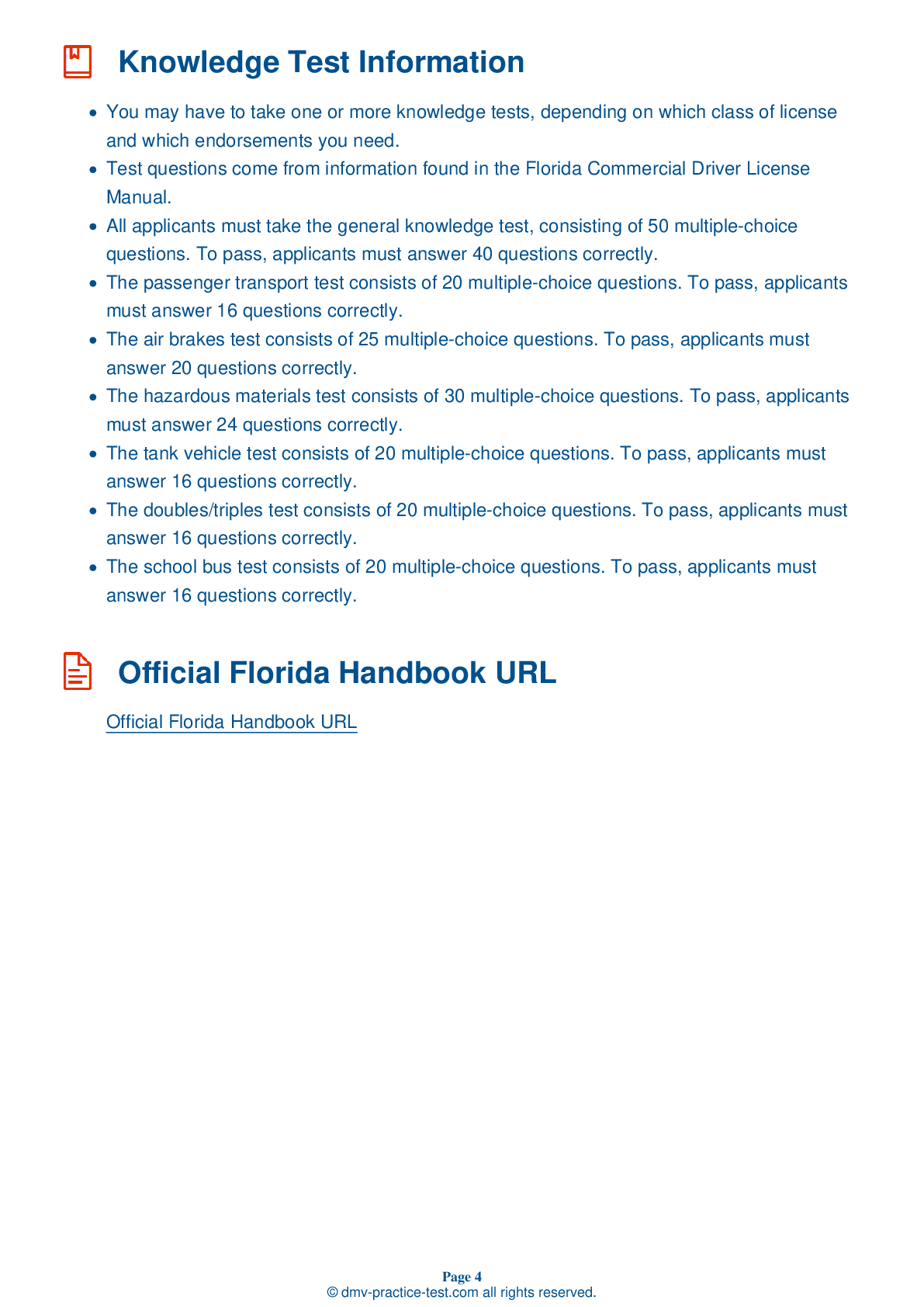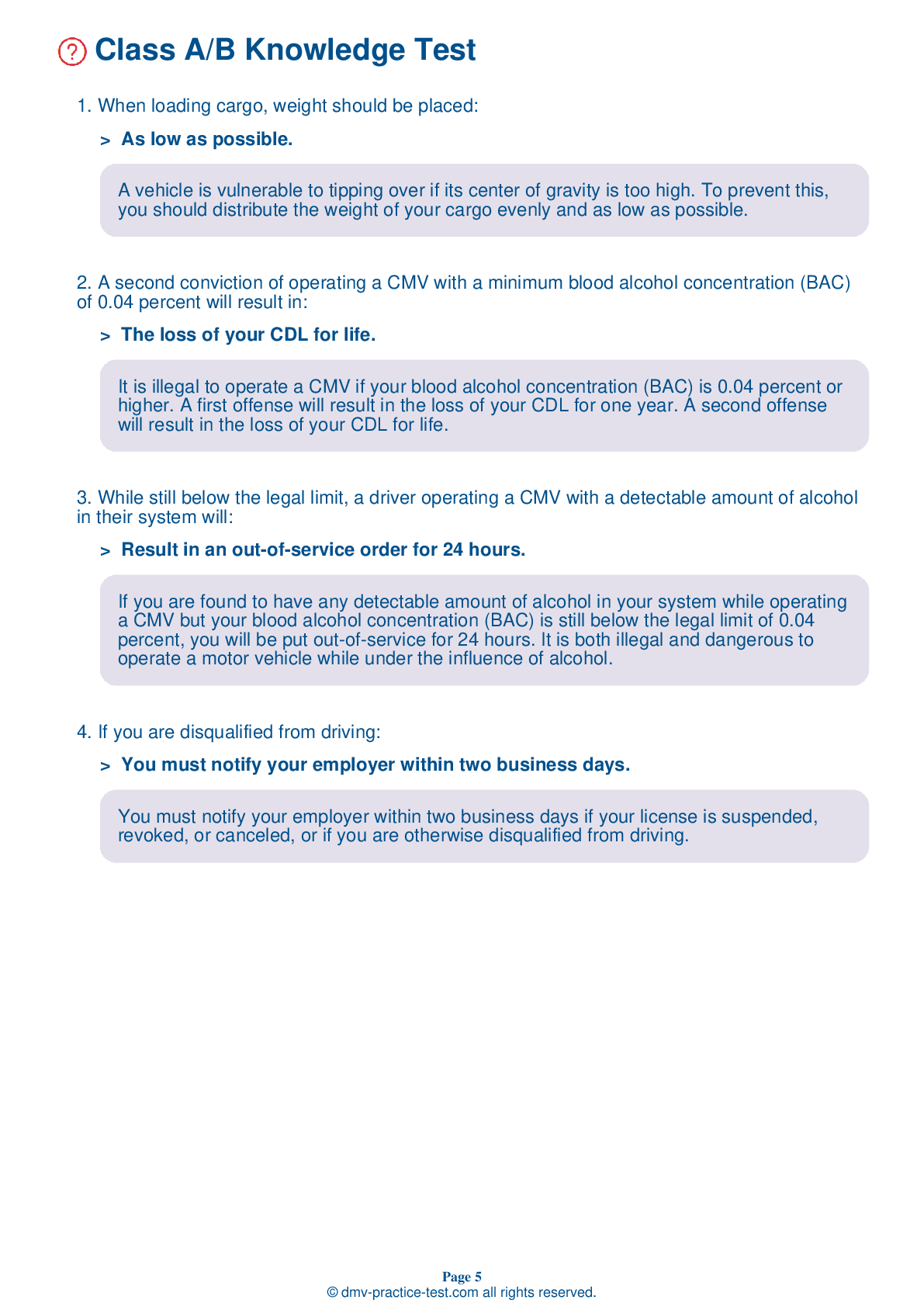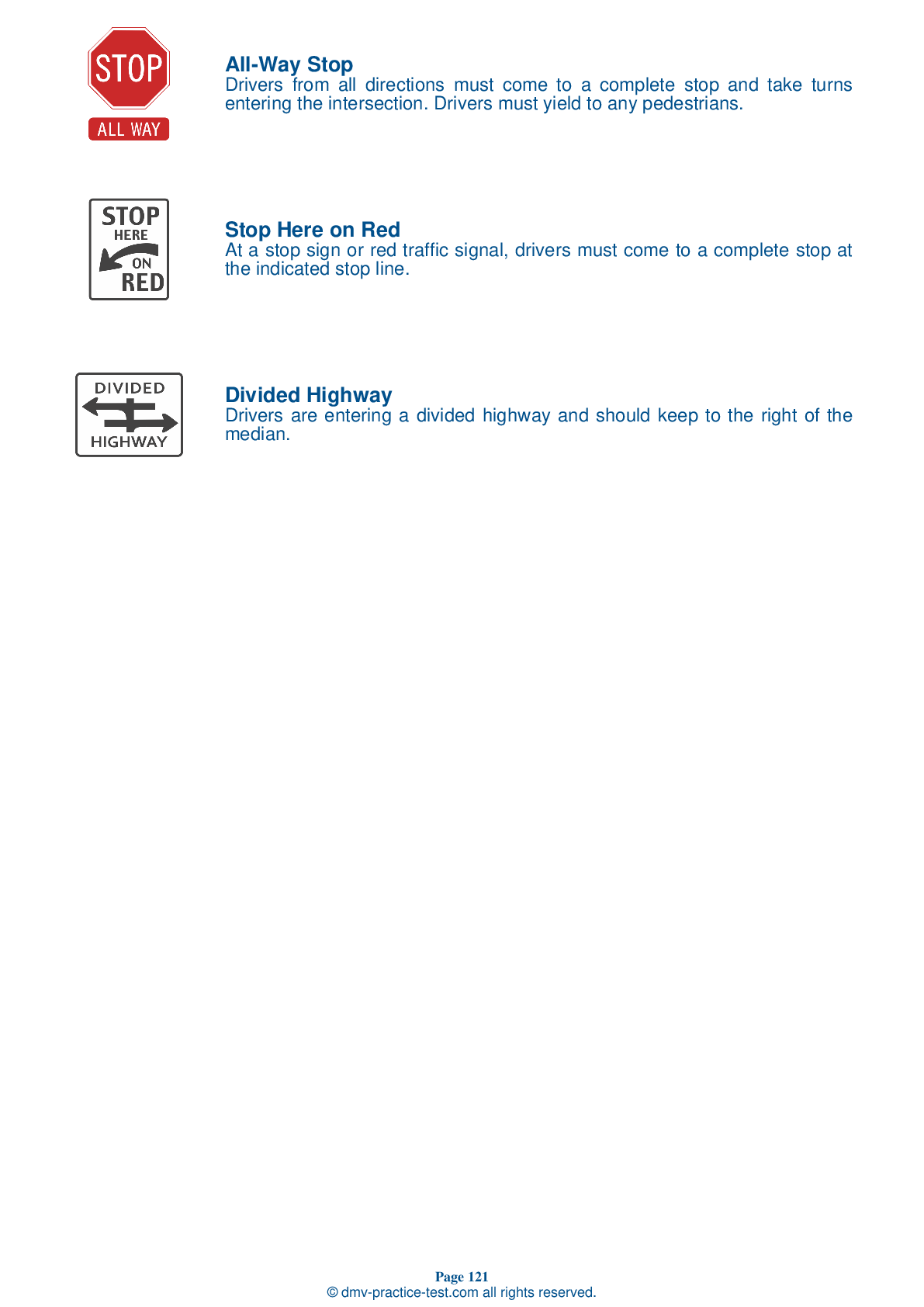HazMat #2
Hazmat Test | Florida 2026 #2 Page 3 of 5
On our website, we provide FREE practice - CDL hazmat test online! The official exam test consists of several obligatory parts, with all of them checking your knowledge of different blocks of road rules. If you need to obtain a FL CDL hazmat endorsement in 2026, practice as much as possible. Free sample tests published on our website will help you check and improve your knowledge and boost your grades. Please bear in mind that Florida requirements for issuing a hazmat endorsement for CDL may vary from those established in other states.
30
24
20
13 . A person supervising the loading of a tank:
Must stay within 25 feet of the tank.
The loading and unloading of a tank must be watched by a qualified person. They must be alert; have a clear view of the tank; stay within 25 feet of the tank; know the hazards of the materials involved; know the procedures to follow in an emergency; and be authorized and able to move the tank if necessary.
14 . If corrosive materials leak in the trailer, the trailer should be:
Cleaned with bleach.
Parts of a vehicle that have been exposed to a corrosive material must be thoroughly washed with water.
15 . When loading compressed gas, the liquid discharge valves should be:
Removed.
Keep liquid discharge valves on a compressed gas tank closed, except when loading and unloading.
16 . Identification numbers, shipping names, and hazard classes:
Should only be abbreviated on a shipping paper if the abbreviations are easy to understand.
Identification numbers, shipping names, and hazard classes must never be abbreviated when listed on a shipping paper. The only exception to this is if the abbreviation is specifically authorized in the hazardous materials regulations.
17 . If you are transporting Class 3 flammable liquids and your cargo needs to be moved into another tank, the flammable liquids:
Should be transferred at night.
Flammable liquids should not be transferred from one vehicle to another on a public roadway, unless being moved due to an emergency. Always warn others of the hazards presented by the materials.
18 . When you are seated behind the steering wheel, shipping papers should be:
Taped to the passenger's side window.
When transporting hazardous materials, shipping papers should be kept in a pouch in the driver's side door, or in another location where the driver is able to easily reach them while their seat belt is fastened. The papers must be easily visible to anyone who is entering the cab.
Search the best driving school in your neighbourhood
2026 Florida | Frequently Asked Questions
To acquire a CDL Tank endorsement in Florida, you must first possess a valid Commercial Driver's License (CDL). Next, study the tank vehicle section of the Florida CDL manual. Then, schedule and pass the tank vehicle endorsement test at a Florida DMV office. This test includes multiple-choice questions about operating tank vehicles and transporting liquids.
To obtain a CDL Tank license, you must first have a valid Commercial Driver's License (CDL). You also need to pass the Tank Vehicle written test, which covers the specific rules and safety measures for tank vehicles. Studying the tank vehicle section in the CDL manual will help you prepare for this test.
Specific training or experience is not mandatory for a CDL Tank endorsement in Florida. However, it's important to thoroughly understand the tank vehicle operations and safety procedures. Studying the tank vehicle section of the Florida CDL manual is crucial. While not required, some applicants may find practical training beneficial for passing the endorsement test.
Yes, to obtain a CDL Tank endorsement in Florida, you must pass an additional written test. This test covers specific knowledge related to tank vehicle operation and safety procedures. It includes multiple-choice questions and is separate from the general CDL written test. The information for the test can be found in the Florida CDL manual's tank vehicle section.
The written test for the CDL Tank endorsement in Florida covers a variety of subjects including, but not limited to, inspecting tank vehicles, recognizing high and low center of gravity and its effects, understanding outage requirements, handling bulkheads, and safety procedures for driving and parking tank vehicles. The Florida CDL manual provides detailed information on these topics.
The CDL Tank endorsement assessment primarily focuses on knowledge rather than specific driving maneuvers. It tests your understanding of inspecting tank vehicles, recognizing high center of gravity and its effects, handling smooth bore tanks, emergency procedures, and dealing with special situations like crossing railroad tracks or long slopes.
Yes, there are certain limitations for drivers with a CDL Tank endorsement in Florida. They are only permitted to operate tank vehicles and are not allowed to haul hazardous materials unless they also possess a Hazardous Materials (HazMat) endorsement. Additionally, they must comply with all federal and state regulations regarding weight limits, vehicle inspections, and hours of service.
No, you cannot transport liquid or gas materials without a valid CDL Tank endorsement in Florida. This endorsement is necessary to operate a commercial vehicle that is designed to transport any liquid or gaseous materials within a tank or tanks having an individual rated capacity of more than 119 gallons and an aggregate rated capacity of 1,000 gallons or more.
The CDL Tank endorsement can be added to your current commercial driver's license in Florida. You don't need to apply for a fresh license, but you will need to pass the Tank Vehicle endorsement test. It's recommended to study the Florida CDL handbook and take practice tests before attempting the endorsement test.
Yes, there are specific regulations and prerequisites in place for handling hazardous materials with a CDL Tank endorsement in Florida. These include obtaining a hazardous materials endorsement, passing a written test, undergoing a background check, and completing a TSA threat assessment. Additionally, drivers must comply with federal regulations such as proper labeling, placarding, and handling of hazardous materials.
